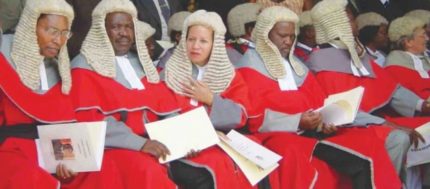In an historic decision, the High Court in London has ruled that three Kenyans who were tortured and castrated by the British during colonial rule more than 50 years ago have the right to sue the British government for compensation.
Because the British government engaged in brutal treatment committed against people of color across the globe during the height of its imperialist aggression, observers contend that torture victims from southeast Asia to Africa to the Middle East might be able to seek compensation from the Brits.
Britain’s Foreign Office said it didn’t dispute that the three Kenyans were tortured in the 1950s and 1960s when they were part of the Mau Mau uprising against the colonial government, but it would still appeal the High Court’s ruling—a decision that disappointed the three Kenyans and their representatives.
Gitu wa Kahengeri, the head of the Mau Mau Veterans’ Association, told the Telegraph it was “disappointing” that the Foreign Office was to appeal.
“It seems that their strategy is to continue to fight this thing on legal technicalities until we die,” he said.
The British government claimed that were a trial to occur, most of the potential witnesses were dead and would make a fair trial impossible. But High Court Justice McCombe disagreed, saying the documentary evidence from the colonial files was “voluminous.”
“The governments and military commanders seem to have been meticulous record keepers,” he said. “I have reached the conclusion that a fair trial on this part of the case does remain possible and that the evidence on both sides remains significantly cogent for the Court to complete its task satisfactorily.”
The case was brought by Paulo Muoka Nzili, 85, Wambuga Wa Nyingi, 84, and Jane Muthoni Mara, 73, who allege that they suffered beatings, castration and sexual assault during their detention by British troops during the rebellion. Occurring between 1952 and 1960, the Mau Mau uprising led to thousands of Kenyans being interned under suspicion of being members of the outlawed Mau Mau sect, which fought the colonial administration.
The two men and one woman say they want an apology from the British government and compensation for injuries they suffered and lifelong complications that followed.
“I hope that this means that the British government will finally come here to give us something to support our families and to help us,” Wa Nyingi told The Daily Telegraph in Nairobi.
When the decision was announced, there was celebration among the dozens of elderly Kenyans who had gathered in the Nairobi offices of a human rights organization.
Martyn Day, a lawyer for the three Kenyans, said the judgment was “historic” and would “reverberate around the world”.”Following this judgment we can but hope that our Government will at last do the honorable thing and sit down and resolve these claims,”he said. “There will undoubtedly be victims of colonial torture from Malaya to the Yemen from Cyprus to Palestine who will be reading this judgment with great care.”
But a spokesman for the British Foreign Office said the ruling had “potentially significant and far reaching” legal implications.
“The normal time limit for bringing a civil action is three to six years,” he said. “In this case, that period has been extended to over 50 years despite the fact that the key decision makers are dead and unable to give their account of what happened.”


